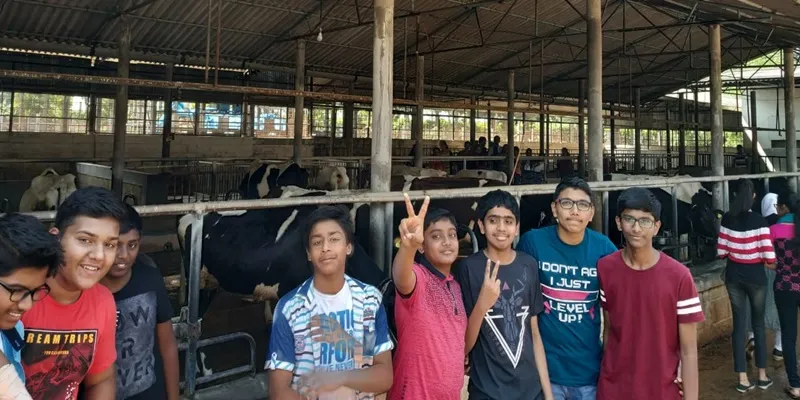Why agri and eco-tourism have become popular with city dwellers and busy professionals
It has increasingly found takers as it gives tourists an opportunity to experience rural life, taste the local food and get familiar with various farming tasks. It provides one an escape from the hassles of daily life.

Agritourism is the form of tourism that capitalises on rural culture as a tourist attraction. It has gained a new dimension as a potential income- and employment-generating activity. The symbiosis between tourism and agriculture that can be found in agritourism is a key element of eco-friendly and socially responsible tourism.
Travel and tourism are human resource-intensive, employing, directly and indirectly, eight percent of the global workforce. It is estimated that one job in the core tourism industry creates about 1.5 additional or indirect jobs in the tourism-related economy. Concentrating on agritourism will reinforce the employment potential of the tourism sector with increased local hiring and sourcing and significant opportunities in tourism oriented toward local culture and the natural environment. In agritourism subsector, increasing the involvement of local communities, especially the poor, in the tourism value chain can contribute to the development of local economy and poverty reduction. This can include the local supply of products, labour, and tourism services.
There is increasing evidence that more sustainable tourism in rural areas can lead to more positive poverty-reducing effects. Nowadays more and more travellers are found to favour environment-friendly tourism and are willing to pay for related experiences. Traditional mass tourism has reached a stage of steady growth but agro-eco-tourism, nature, heritage, cultural, and “soft adventure” tourism too are doing well and are predicted to grow rapidly over the next two decades.

Agritourism is similar to eco-tourism except that its primary appeal is not the natural landscape but a cultural landscape. Agritourism can promote regional development and helps to conserve diversity in plant and wildlife. An advantage of this approach is that rural areas are popular destinations for holidays and excursions, particularly cultural landscapes, which still give a glimpse of how past generations lived and worked. Specific plans, mechanisms and tools to educate small- and medium-sized tourism-related enterprises will then become critical. The promotion and widespread use of internationally recognised standards for sustainable tourism can help businesses understand the practical aspects of sustainable tourism and assist them in mobilising investment.
Tourism has emerged as one of the largest global economic activities. As per the estimate of World Travel and Tourism Council (WTTCC), tourism generated more than worth $5 trillion of output equivalent to about eight percent of total world GNP(G.N.P is a broad measure of a nation's total economic activity). India’s share of world tourist arrival has been merely four percent of the World Trade and Tourism Organization. in its Tourism vision 2020 has projected that there would be about 1.6 billion international tourists in all countries of the world by the year 2020. As per the same estimation, India is expected to fuel 4.5 times growth in international tourists’ destination thus playing a major role in the economy of the states.
Agro-eco-tourism
Agro-eco-tourism is the latest concept in the Indian tourism industry, which normally occurs on farms. It is the symbiotic association of farming sector, tourism industry and farm business. It is the economic activity that occurs when people link travel with agricultural products, services or experiences to cater to the needs of mutual demands. Agri-eco-tourism entails visiting a working farm or any agriculture, horticulture or agribusiness operation, for the purpose of leisure, education or active involvement in the activities of the farm or operation. It gives you the opportunity to experience rural life, taste the local food and get familiar with the various farming tasks during the visit. It provides you with an escape from the daily hectic life in a peaceful rural environment. Agritourism provides tourists with an opportunity to be close to where the 75 percent of Indians live.

If the first indications of the joint ongoing study by the Confederation of Indian Industries (CII) and YES Bank are anything to go by, the scope of agri-tourism is very promising. The concept is to tap the vast market of inland urban tourists who want to take a break from a mechanical life and enjoy the peace and tranquillity of rural life in its natural abundance. Agro-eco-tourism is the new value-added agricultural business for improving the incomes and potential economic viability of small farms and rural communities. Agritourism can take many forms like roadside stands or on-farm direct sales, which can offer farm-fresh produce to travellers as well as interaction with growers. Agritourism ends farmers’ isolation and offers the opportunity to make new friends and build stronger links to the community.
Some eco-tourism destinations in Karnataka include Coorg, Madikeri, Dakshin Kannada, Karwar, Sirsi, Mysuru, Sringeri, etc. So when are you planning your next trip into rural India?
(Disclaimer: The views and opinions expressed in this article are those of the author and do not necessarily reflect the views of YourStory.)







